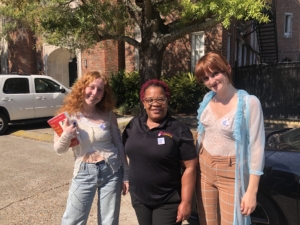A guest contribution from CLN Member John McNay
Two bills have been introduced in the Ohio legislature that are at odds with Catholic doctrine regarding labor unions.
The leading advocate for the legislation is Sen. Jerry Cirino, a Republican from Kirtland, Ohio. He introduced SB 83 and it has a companion bill in the House, HB 151.
The bills, directed at all unions at public colleges and universities, ban strikes. But the bills specifically target faculty unions by barring what are traditionally routine negotiations over tenure, annual performance reviews, workload, and retrenchment.
The Catholic church has held for many years that strikes have a legitimate role in negotiations. For example, Pope John Paul II wrote in his statement On Human Work in 1981 that: “One of the methods used by unions is the strike, or work stoppage – a means that is recognized by Catholic social teaching as legitimate under the proper conditions and within proper limits. Workers should be assured of the right to strike without fear of penalty.”
Similarly, in 1986, the US Conference of Catholic Bishops in their statement on Economic Justice for All, wrote: “Unions may also legitimately resort to strikes where this is the only available means to the justice owed to workers.”
Given how rare strikes are at universities in Ohio (two in the last 10 years), it cannot be said that the right to strike is being abused. The evidence shows that strikes occur only as a last resort. My own faculty union last went on strike 30 years ago.
While the ban on strikes cripples all union workers at public colleges and universities – janitors, grounds keepers, maintenance staff, cafeteria staff, secretaries, professors, etc – there is much in SB 83/HB 151 that focuses on undermining the terms and conditions of employment of faculty.
Pope Benedict understood and disapproved of this kind of political intervention when he wrote in his encyclical letter, Caritas in Veritate, that the task of unions has become more difficult because governments “often limit the freedom or negotiation capacity of labour unions.” Yet, he continued, “The repeated calls issued within the Church’s social doctrine, beginning with Rerum Novarum (1891), for the promotion of workers’ associations that can defend their rights must therefore be honoured today even more than in the past…”
This attack on faculty employment conditions is targeted in such a way as to make the union as ineffective as possible and weaken the organizing ability of unions and is certainly a violation of the Catholic support of unions going back many years. Lastly, the church’s social doctrine recognizes labor unions “should not be forced to submit to the decisions of political parties nor be too closely linked to them.” (Compendium of the Social Doctrine of the Church, 307)
We would hope that Catholic politicians would look to the wisdom of the church before taking such a destructive political act rooted in partisan politics.

